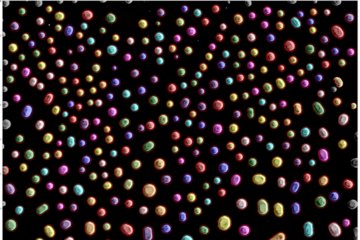All genres
821.
Talk
Ab initio guided materials design: Concepts, prospects and challenges. Seminar talk at Universität Duisburg-Essen, Duisburg, Germany (2012)
822.
Talk
Atomic forces at finite magnetic temperatures: Phonons in paramagnetic iron. DPG Frühjahrstagung 2012, Berlin, Germany (2012)
823.
Talk
SAPIENS, a DFT and experimental based thermophysical database for pure elements. DPG Frühjahrstagung 2012, Berlin, Germany (2012)
824.
Talk
The dangling-bond defect in amorphous silicon: Insights from ab initio calculations of EPR parameters. DPG Frühjahrstagung 2012, Berlin, Germany (2012)
825.
Talk
Ab-initio Study on Liquid Metal Embrittlement in the Fe/Zn System. DPG Frühjahrstagung 2012, Bochum, Germany (2012)
826.
Talk
Interactions of 2nd row high electron affinity elements with Mg(0001). DPG Frühjahrstagung 2012, Berlin, Germany (2012)
827.
Talk
Decomposition of cemetite under strain in pearlitic. DPG Frühjahrstagung 2012, Berlin, Germany (2012)
828.
Talk
On the accuracy of ion hydration energies - An ab-initio study. DPG Frühjahrstagung 2012, Berlin, Germany (2012)
829.
Talk
Fully ab initio determination of anharmonic contributions by efficient sampling strategies. DPG Frühjahrstagung 2012, Berlin, Germany (2012)
830.
Talk
Ab initio study of stability of Fe3Al surfaces in contact with an oxygen atmosphere. DPG Frühjahrstagung 2012, Berlin, Germany (2012)
831.
Talk
Impact of alloying elements on H solubility in steels. DPG Frühjahrstagung 2012, Berlin, Germany (2012)
832.
Talk
Simulations of grain boundary migration via the nucleation and growth of islands. DPG Frühjahrstagung 2012, Berlin, Germany (2012)
833.
Talk
Fully ab initio determination of anharmonic contributions by efficient sampling strategies. TMS 2012, Orlando, FL, USA (2012)
834.
Talk
Ab Initio Thermodynamics of the fcc-bcc Transition in Ca Including All Relevant FiniteTemperature Excitation Mechanisms. TMS 2012, Orlando, FL, USA (2012)
835.
Talk
Accelerated self-diffusion in fcc metals due to H induced superabundant vacancies. TMS 2012 Meeting, Orlando, FL, USA (2012)
836.
Talk
On the Role of Mg Atoms in Calcite Crystals: An Ab Initio Study. EURO Bio-inspired Materials, International School and Conference on Biological Materials Science, Potsdam, Germany (2012)
837.
Talk
On the role of Mg atoms in calcite crystals: An ab initio study. DPG Frühjahrstagung, Berlin, Germany (2012)
838.
Talk
Vibrational spectra of charged point defects in ionic oxides. DPG Frühjahrstagung 2012, Berlin, Germany (2012)
839.
Talk
Advancing ab initio to finite temperatures for applications in materials design. DPG Frühjahrstagung 2012, Berlin, Germany (2012)
840.
Talk
Long time scale simulations to determine accurate ab initio free energies. Beyond Molecular Dynamics (BEMOD) workshop, Dresden, Germany (2012)











